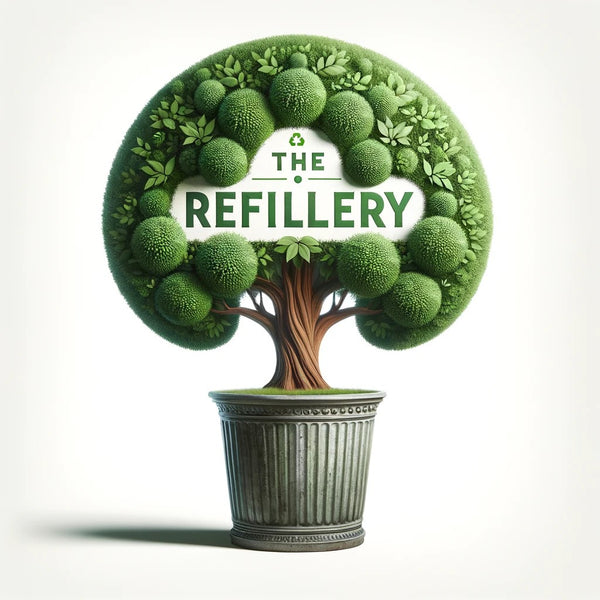Eco-Friendly Cleaning FAQ
Frequently Asked Questions: Eco-Friendly Household Cleaning
Getting Started with Green Cleaning
Q: What makes a cleaning product eco-friendly?
A: Eco-friendly cleaning products are made with biodegradable ingredients, contain no harsh chemicals like phosphates, SLS (Sodium Lauryl Sulfate), parabens, or chlorine bleach, use minimal packaging (preferably recyclable), and are not tested on animals. They break down naturally without harming waterways or wildlife.
Q: Are eco-friendly cleaners as effective as conventional ones?
A: Yes! Modern eco-friendly cleaners are formulated to be just as effective as conventional products. Natural ingredients like vinegar, aluminum-free baking soda, and plant-based surfactants can tackle dirt, grease, and bacteria effectively when used properly.
DIY Natural Cleaning Solutions
Q: What are some basic ingredients I can use to make my own cleaners?
A: Essential ingredients include white vinegar (disinfectant and deodorizer), aluminum-free baking soda (abrasive and deodorizer), castile soap (gentle cleaner), lemon juice (natural bleach and deodorizer), and essential oils (antimicrobial and fragrance). At The Refillery we also have a variety of cleaning products that are refillable.
Q: Can you share a simple all-purpose cleaner recipe?
A: Mix 1 cup water, 1/2 cup white vinegar, 1/4 cup rubbing alcohol, and 1-2 drops dish soap in a spray bottle. Add 10-15 drops of essential oil for fragrance. This works great on most surfaces except natural stone. You can find stone and quartz cleaner at The Refillery.
Q: How do I make a natural glass cleaner?
A: Combine 2 cups water, 1/2 cup white vinegar, and 1/4 cup rubbing alcohol in a spray bottle. For streak-free results, clean windows on cloudy days and use newspaper or microfiber cloths. We carry so many refillable glass cleaners.
Specific Cleaning Challenges
Q: How can I naturally remove soap scum from my bathroom?
A: Make a paste with aluminum-free baking soda and water, apply to soap scum, let sit for 15 minutes, then scrub with a brush and rinse. For tough buildup, spray with vinegar after applying the paste for extra cleaning power.
Q: What's the best way to clean and disinfect naturally?
A: White vinegar kills 99% of bacteria and 82% of mold species. For disinfecting, use undiluted vinegar, let it sit for 30 seconds, then wipe clean. Tea tree oil is also naturally antimicrobial. The Refillery has Surface disinfectant, linen mist and odor neutralizer.
Q: How do I remove stains naturally from carpets and upholstery?
A: For fresh spills, blot immediately. Mix 1 cup warm water with 1/4 cup white vinegar and 1 tablespoon dish soap. Apply to stain, blot with clean cloth, and rinse with water. For odors, sprinkle aluminum-free baking soda, let sit overnight, then vacuum. You have to try our amazing Stain Remover, one of our best seller.
Sustainable Cleaning Practices
Q: How can I reduce waste while cleaning?
A: Use reusable microfiber cloths instead of paper towels, repurpose old t-shirts as cleaning rags, buy concentrates to reduce packaging, choose refillable containers, and make your own cleaners in reusable spray bottles.
Q: What cleaning tools are most eco-friendly?
A: Microfiber cloths (last for hundreds of washes), natural bristle brushes, bamboo scrub brushes, Swedish dishcloths, and old toothbrushes for detail work. Avoid single-use items when possible. At The Refillery we have an assortment of beautiful Swedish sponges.
Q: How often should I really be cleaning to maintain a healthy home?
A: Daily: dishes, wiping counters, making beds. Weekly: bathrooms, floors, dusting. Monthly: deep cleaning appliances, washing windows. Seasonal: organizing, deep carpet cleaning. Regular maintenance prevents the need for harsh chemicals.
Safety and Storage
Q: Are homemade cleaners safe around children and pets?
A: Generally yes, but always store cleaners out of reach and label containers clearly. Never mix different cleaning products. While natural ingredients are safer, they should still be used as directed and kept away from little ones.
Q: How long do homemade cleaners last?
A: Most homemade cleaners last 1-3 months when stored in a cool, dark place. Vinegar-based cleaners last longer than soap-based ones. Always smell and inspect before use - if it looks or smells off, make a fresh batch.
Shopping for Eco-Friendly Products
Q: What certifications should I look for when buying green cleaning products in Canada?
A: Look for these trusted certifications:
- EcoLogo (now UL) - Canada's most recognized environmental standard
- CFIA Organic certification - For applicable organic products
- Leaping Bunny - The gold standard for cruelty-free certification, ensuring no animal testing
- EcoCert - International organic and natural cosmetics certification, also covers cleaning products
- B Corp Certified - Companies meeting high standards of social and environmental performance, accountability, and transparency
- Green Seal - Widely accepted environmental certification in North America
These certifications ensure products meet strict environmental, ethical, and health standards relevant to Canadian consumers.
Q: Is it more expensive to clean green?
A: Initially, eco-friendly products may cost more, but they're often concentrated (lasting longer) and making your own cleaners is very cost-effective. Plus, you're investing in your family's health and the environment's future.
Remember: Small changes make a big difference! Start with one or two swaps and gradually transition to a completely green cleaning routine. Your health, your family, and the planet will thank you.
For more eco-friendly products and refill options, visit us at The Refillery Cochrane - your local source for sustainable living solutions!
